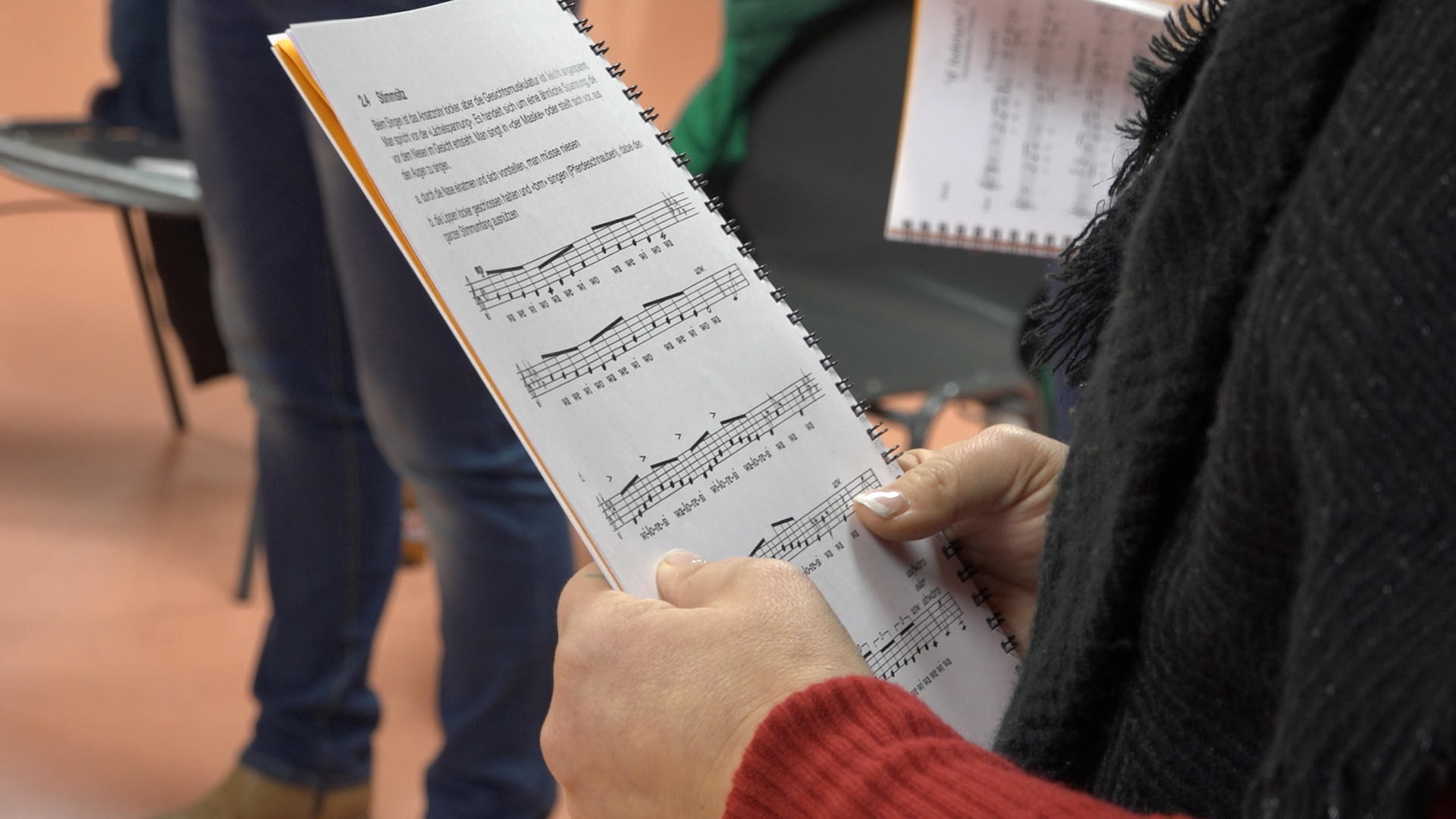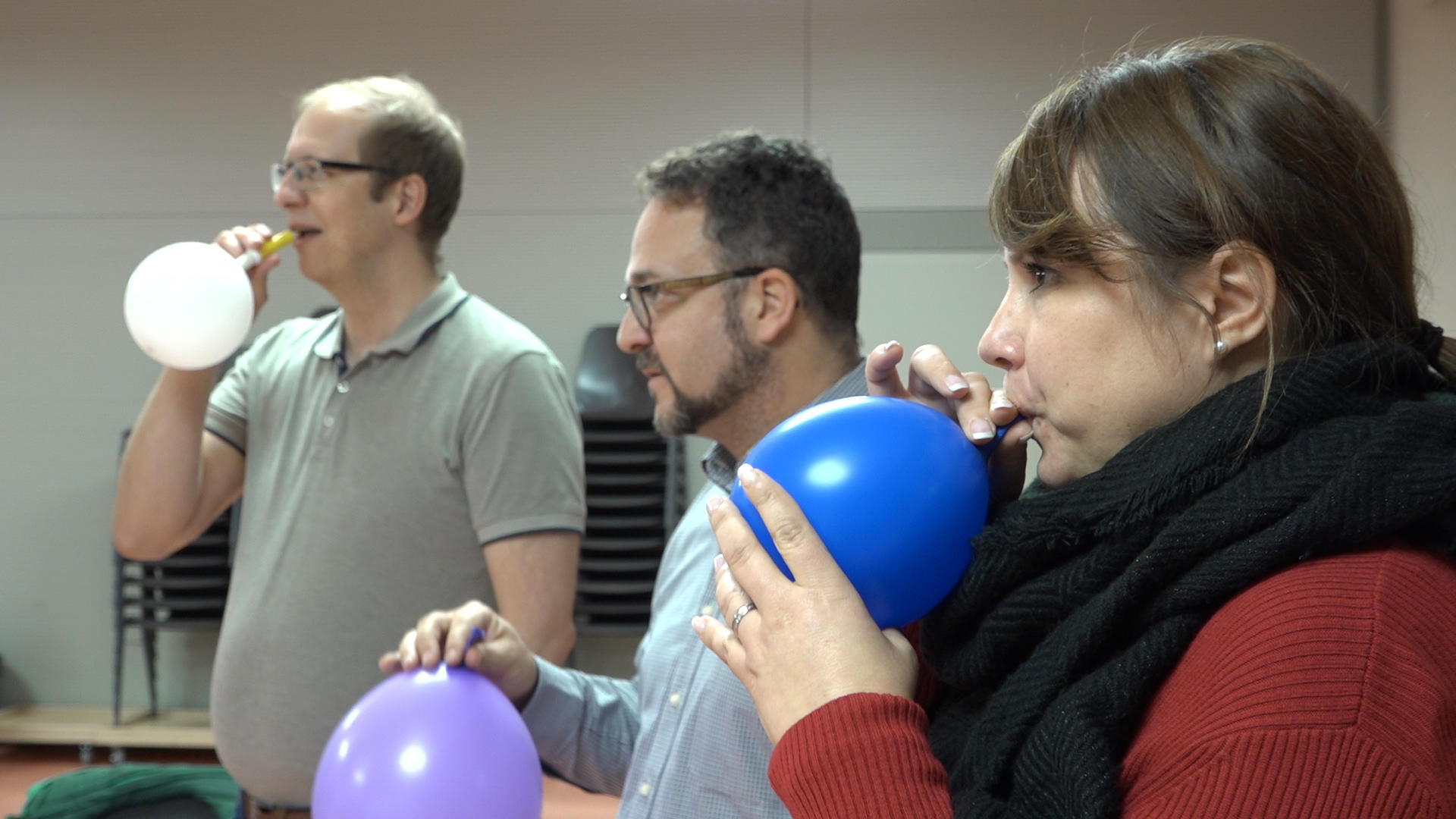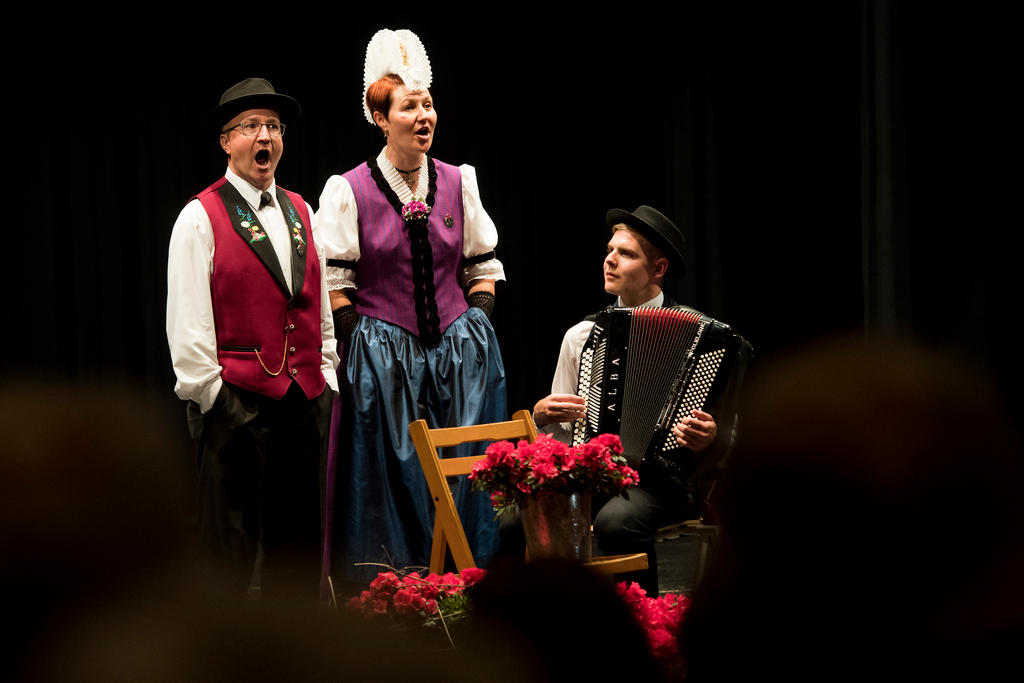How to get a bachelor’s degree in yodelling

Yodelling has come a long way since it was used by herdsmen to call their animals or communicate between Alpine villages. People are expected to have singing lessons before applying to join a yodelling club. Now a university in Lucerne has gone one step further, offering a bachelor course majoring in yodelling.
The multi-pitched “yelling” that has become part of Swiss traditional lore and musical expression can be learned and finessed in workshops across the north of the country, offered by the Swiss Yodelling AssociationExternal link. swissinfo.ch visited a beginner’s class in Emmenbrücke, canton Lucerne, to find out how people learn to do it.
This group has been training for five evenings as part of the course under the tuition of Ursula Gernet, a solo yodeller and choir director. Most of the students had a good grasp of the singing form before starting the course, having learnt it from their parents.

More
Yodelling for beginners
Yodelling has also taken centre stage at the Lucerne University of Applied SciencesExternal link and Arts. Since 2009, the University has offered bachelor’s courses majoring in traditional instruments such as the ‘Schwyzeroergeli’ accordion or the ‘Hackbrett’ in the folk music division headed by Nadja Räss. In Autumn 2018, the institution added a yodelling course to its repertoire.
swissinfo.ch visited the university and spoke to bachelor student Dayana Pfammatter, who also directs a yodelling choir in her home canton of Valais.

More
Elevating ancient singing form to degree level
Folk Revival: Traditional instruments are also enjoying a revival at other European universities. At the Sibelius Academy in Helsinki, students learn the Finnish zither and at the University of Limmerick, they study the Irish fiddle. Universities and academies in Britain and Denmark also offer folk music degrees.
Music anthropologist, Britta Sweers, from the Institute for Musicology at the University of BernExternal link, has welcomed the new yodelling major in Lucerne: “All the graduates are experimental musicians so they try out new things with traditional Swiss approaches and they advance these techniques further, in ways which would not have been possible if yodelling had stayed in a more traditional context”.
Too much polish?
At the same time, she believes that teaching yodelling at an academic level could present a threat to amateur yodelling. She elaborates, “There is this fear that the school of music might set up different aesthetics that are more brilliant, more polished and so on, and that this might also change audiences’ tastes and push out those that don’t have this kind of academic training”.
Karin Niederberger, President of the Swiss Yodelling Association, has no such fears. She insists that there is no competition between amateurs and professionals. She adds, “I don’t know whether a degree course will benefit yodelling overall – it’s too early to say. All I can say is that I want yodelling at an amateur level to develop further, but I don’t want it to become too sophisticated. The most important thing is that it comes from your heart. It should be natural and authentic. That’s what we want to promote, as well as regionality and dialects”.
“Yodelling at amateur level should be natural, authentic and not too sophisticated” – Karin Niederberger, Swiss Yodelling Association
Yodelling into the future
Niederberger is convinced that training for singers at a less academic level is key to preserving the yodelling tradition for decades to come. Above all, she says, it’s important that yodelling is taught within families and passed on down through the generations.
Yodelling boom: The Swiss Yodelling Association has three branches – yodelling, alphorn blowing and flag throwing, with a total of 21,000 active members. Visitor numbers at the federal yodelling festivals, held every three years, are proof of the continued popularity of traditional music. The 30th edition, held in Brig in 2017, attracted 150,000 people.
If you listen carefully, you can hear specific techniques in yodelling. Below are three examples, sung by Ursula Gernet.

More
The “Tröhl” yodel

More
The “Kehlkopfschlag”

More
The “Sing” yodel

In compliance with the JTI standards
More: SWI swissinfo.ch certified by the Journalism Trust Initiative

















You can find an overview of ongoing debates with our journalists here . Please join us!
If you want to start a conversation about a topic raised in this article or want to report factual errors, email us at english@swissinfo.ch.